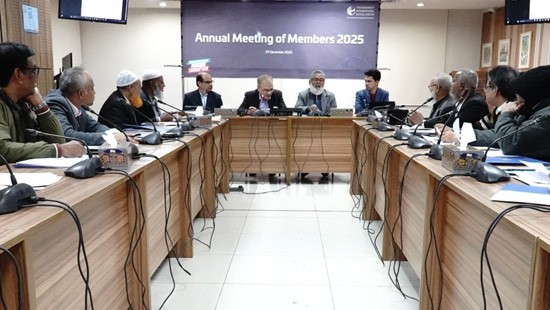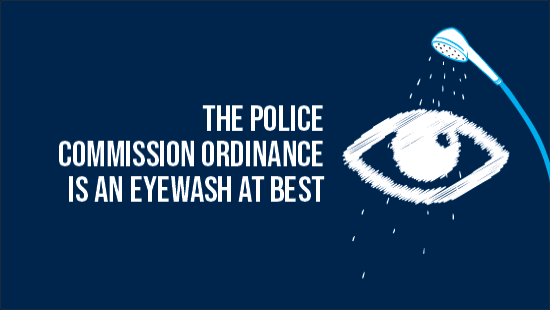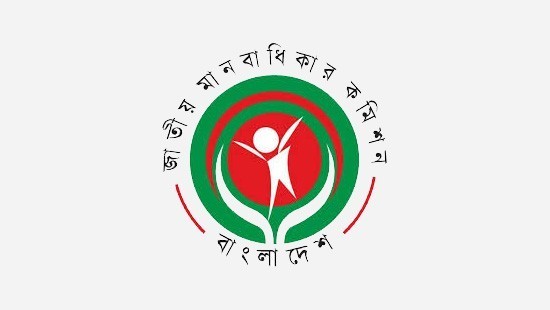Press Release
Dhaka, 04 November 2025: More than 50 percent of the government’s own fund—the Bangladesh Climate Change Trust (BCCT) Fund, established to tackle the climate crisis—has been lost due to various forms of irregularities and corruption, amounting to over Tk 2,000 crore. This information was revealed by Transparency International Bangladesh (TIB) at a press conference organized today to release a research report titled “Governance Challenges in Climate Finance in Bangladesh and Way Forward.” According to the study, between 2010 and 2024, a total of 891 projects were approved under the BCCT, with an estimated allocation of USD 458.5 million (Tk 3,896 crore). Of that, USD 248.4 million (Tk 2,110.6 crore) has been lost due to corruption.
At the press conference held at TIB’s Dhanmondi office, it was revealed that bribery and illegal transactions during project approvals, irregularities in contractor appointments, and fund embezzlement during implementation stages were major sources of corruption. TIB stated that the widespread irregularities and failures in preventing corruption have led to massive wastage of scarce climate funds and compromised the usefulness of projects. Consequently, the BCCT is at risk, and future allocations for climate initiatives may decline, depriving vulnerable and marginalized communities of the support they need in the long run. Based on its findings, TIB has made nine key recommendations for the government and stakeholders. The press conference was attended by TIB Executive Director Dr. Iftekharuzzaman, Advisor to Executive Management Professor Dr. Sumaiya Khair, and the Director of Research and Policy Division Muhammad Badiuzzaman. The event was moderated by the Director of Outreach & Communication Mohammad Tauhidul Islam, while the report was presented by Senior Research Fellow Md. Mahfuzul Haque and Research Associate Md. Shahidul Islam.
Criticizing the political involvement behind the over 50 percent loss caused by various irregularities and corruption in projects implemented under government funding, TIB Executive Director Dr. Iftekharuzzaman said, “The nature and extent of irregularities in this sector indicate that it has become a specialized area of corruption driven by political collusion. Those involved include various stakeholders, such as the BCCT board chair or members, as well as politically influential groups, whose conflicts of interest and abuse of power, combined with corruption among some implementing officials and irregularities or illegal transactions by contractors and implementing agencies, have taken corruption in this sector to new heights. On the other hand, despite the obligation and opportunity to implement priority-based, risk-sensitive initiatives in climate financing, these objectives have not been achieved due to irregularities and corruption. Bangladesh is among the countries most vulnerable to the impacts of climate change. For countries like Bangladesh that are at high risk from climate change, developed nations—responsible for the majority of global pollution—had pledged financial support as compensation, committing to provide USD 100 billion annually as additional and new funding over and above normal foreign aid. However, these polluting countries have so far failed to honor their commitments. The disbursement of funds from relevant international climate mechanisms has also been negligible. For this reason, the importance of ensuring corruption-free use of climate funds financed by public money as part of the national budget is immense.”
Commenting on the shortcomings of governance in the use of public funds, Dr. Zaman said, “According to estimates by the government and experts, from 2003 to 2024, Bangladesh required a total allocation of USD 10 to 12 billion for climate change-related projects. In contrast, the total national and international allocation we received was only USD 1.2 billion. Even this meager amount was not spent transparently; rather, it was outright embezzled. In the absence of the expected flow of foreign funding to address climate change-induced crises, local funding had created a certain optimism. However, the findings of this study are deeply embarrassing. Of the limited public funding available, the majority—over Tk 2,000 crore—was misappropriated or wasted through irregularities and corruption. While this amount may seem smaller compared to the overall plundering over the past 16 years, in reality it constitutes 54 percent of the government fund for this sector. Nevertheless, this should not undermine the importance of government-funded climate projects; rather, government allocations should be increased. At the same time, accountability must be ensured for everyone involved in irregularities, regardless of their identity or position, and the BCCT should be restructured to operate professionally, free from government and political influence.”
The study found that most corruption occurred during the implementation phase of BCCT projects. A significant amount of money was embezzled under the guise of streetlight and solar panel installation. From 2019 to 2023, the BCCT board approved 373 projects—of which 216 (57.9%) were related to installing solar streetlights in municipalities and other areas. Many of these projects were approved with grossly inflated equipment costs, estimated between 47.1% and 57.1%. The estimated embezzlement from solar streetlight projects alone amounts to USD 17–20.7 million (Tk 144–175 crore). Over the past 14 years, bribery and illegal transactions during project approval amounted to Tk 175 crore, while collusive tendering, contractor recruitment, and subcontract corruption totaled Tk 599.9 crore. Fund embezzlement during implementation reached Tk 1,281.3 crore, and Tk 54.4 crore was exchanged in bribes among supervising officials.
The report also noted significant funding gaps in major national plans such as the Nationally Determined Contributions (NDCs), the National Adaptation Plan, Sustainable Development Goal 13 (Climate Action), and the Bangladesh Delta Plan 2100. Although climate-related allocations are made through the regular national budget, they constitute only 23.2% of the annual estimated need, while allocations from national and international climate funds are a mere 0.7% of the annual requirement. The study highlighted weaknesses in existing laws and policies, including the Bangladesh Climate Change Strategy and Action Plan (BCCSAP) and the Bangladesh Climate Change Trust Act 2010, which are no longer adequate or up to date. There is an absence of clear regulations and guidelines for fund management and project implementation. Overall, Bangladesh’s climate finance framework suffers from insufficient attention, low budgets compared to needs, geographically and strategically inconsistent project selection, and a lack of long-term planning.
TIB observed that all indicators of good governance show significant shortcomings in the operation of climate funds. These include weak laws, policies, and planning frameworks; imbalance in fund allocations based on vulnerability; limited institutional capacity for project implementation; delays in fund disbursement; weak accountability and transparency mechanisms; limited stakeholder participation and coordination; and widespread corruption with inadequate preventive measures.
Based on its findings, TIB recommended updating the BCCSAP 2009 and other national climate plans and increasing budget allocations for climate-related projects. It also called for amendments to the Bangladesh Climate Change Trust Act 2010 and for enabling the BCCT to access innovative financing sources such as international climate funds, carbon trading, and the Clean Development Mechanism beyond the national revenue budget. The organization further emphasized ensuring transparency and accountability in project approval and implementation, prioritizing geographical and vulnerability-based funding to reach affected communities, bringing those involved in corruption to justice, and establishing a separate, independent monitoring body to regularly supervise and audit all national and international climate fund projects implemented in Bangladesh.
Media Contact:
Mohammad Tauhidul Islam
Director, Outreach and Communication
Phone: +8801713107868
Email: tauhidul@ti-bangladesh.org






